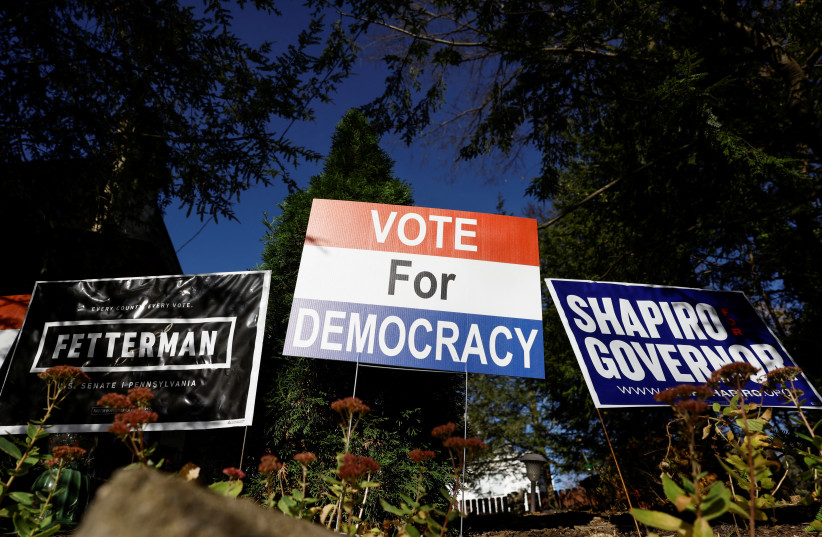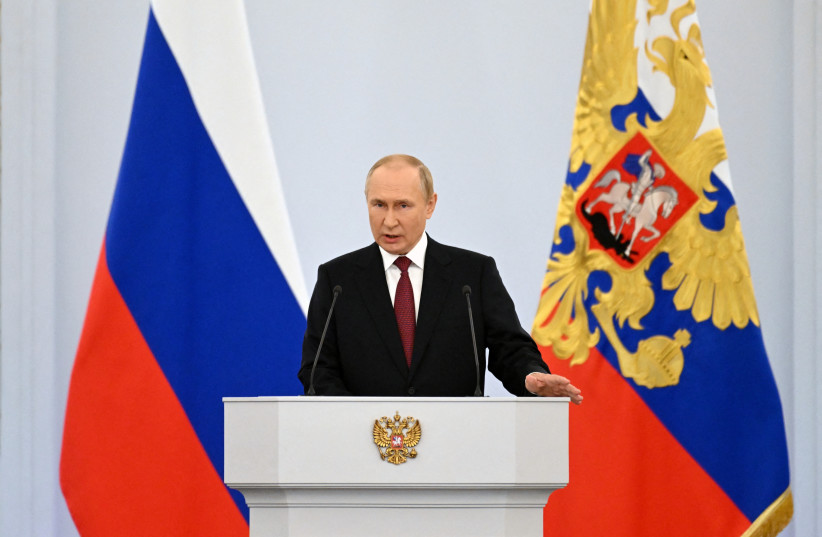Recent elections in Brazil, Israel and across the US this week show that global democracy is thriving, even if there are concerns that some voices are a threat to democracy or those anti-democratic elements exist.
Overall, more than 150 million Americans voted, 124 million in Brazil and 4.7 million in Israel. Considering the fact that many of the world’s most powerful countries, such as China or Russia, don’t have free and fair elections, the fact hundreds of millions went to the polls is important.
The 30-year shift across the globe
The world today is not like the world in the 1990s when a US-led world order and democratization appeared to be the wave of the future. The collapse of the Soviet Union in 1990 and the Gulf War; as well as other factors, led to a major shift in the world.
Democracy swept Eastern Europe, including Russia, and countries like South Africa had full democratic elections.
In contrast to the 1990s, the 2010s saw a major shift in terms of the rise of authoritarian regimes and the eroding of democracy in key places like Turkey and Russia. Even in the Middle East, where democracy has generally been tenuous, the hopes for more institutionalized democracy in Tunisia have come to naught. In Sudan, the overthrow of the regime has not produced more democracy and places like Iraq and Lebanon appear to be lurching from chaos to chaos.

Elections in Brazil, the US, and Israel matter more than ever because these are all powerful countries in their respective regions. What happens in Brazil affects South America; what happens in Israel matters to the Middle East and the US democracy is looked upon as a bellwether as well. There are commonalities between the challenges that these three countries face.
Israel, Brazil and the US face similar issues
Each country has internal discussions about whether the far Right has become less democratic.
Israel’s recent election saw religious and right-wing parties triumph and saw the leftist Meretz party not even pass the threshold.
On the flipside, the parties that make up the Center do not have internal primaries, which means that even in the Center, Israel has a major problem of lacking full democratic tendencies.
This doesn’t mean that overall Israel is not democratically inclined; the fact that there are so many parties, including many small parties that do not pass the threshold, shows a hyper-democratic landscape.
In Brazil, the defeat of Jair Bolsonaro by Luiz Inacio Lula da Silva is a major setback for the populist right. Critics of Bolsonaro saw his rise as a major shift in Brazil’s politics and voting patterns show how the country is deeply divided between southern Brazil, which primarily supported Bolsonaro; and northeastern Brazil where Lula’s supporters were strongest.
Across South America, there are other issues at stake. Venezuela’s authoritarian leader Nicolas Maduro has been making moves on the global stage and Western countries seem open to doing more work with Caracas. This comes several years after western countries had claimed the Maduro regime was basically illegitimate. Now it is coming back in “from the cold,” according to the Financial Times.
Meanwhile, in the US it’s not yet clear how the midterms will affect the US yet but overall, what matters is the elections took place and there does not seem to be a major cloud cast over them, as there was in 2020, with protests and officeholders refusing to concede or claiming the elections were “stolen.”
There are few things that can undermine democracy more than having large swaths of a country not accept the results of an election. That can end up being a road to radicalization and people questioning basic aspects of democracy.
The 2022 elections were a chance for the US to go to the polls and perhaps reverse the themes that underpinned the election in 2020 and its aftermath. This doesn’t mean that all those wounds are healed or that partisanship and division are not clearly visible. In all three countries, there are deep divides.
World's democracies are divided
Brazil has seen major protests by Bolsonaro supporters. In Israel, there are very real concerns about whether a far-right government will emerge and whether this could lead to instability either in the West Bank or in Israel’s mixed cities. It’s not clear what the wider ramifications will be or whether Iran will take this as an opportunity to stir up tensions.

Overall, however, considering that countries like Russia are trying to push for a new world order in which it claims the West is declining and the authoritarians are rising; the elections in important countries matter. Russia uses forums like the SCO and CICA in Central Asia to push for a new world order.
Tehran’s supreme leader also put out statements last week about Iran’s embrace of this new order. China’s reelection of its powerful leader is also part of the agenda of the new authoritarians. Turkey’s attempt to blackmail NATO and make Sweden and Finland accept Ankara’s demands is another threat to the world’s democracies.
All this is interlinked. Because it is interlinked, the three recent elections are also interlinked and have more of a say in global affairs than may have been the case in the past.
